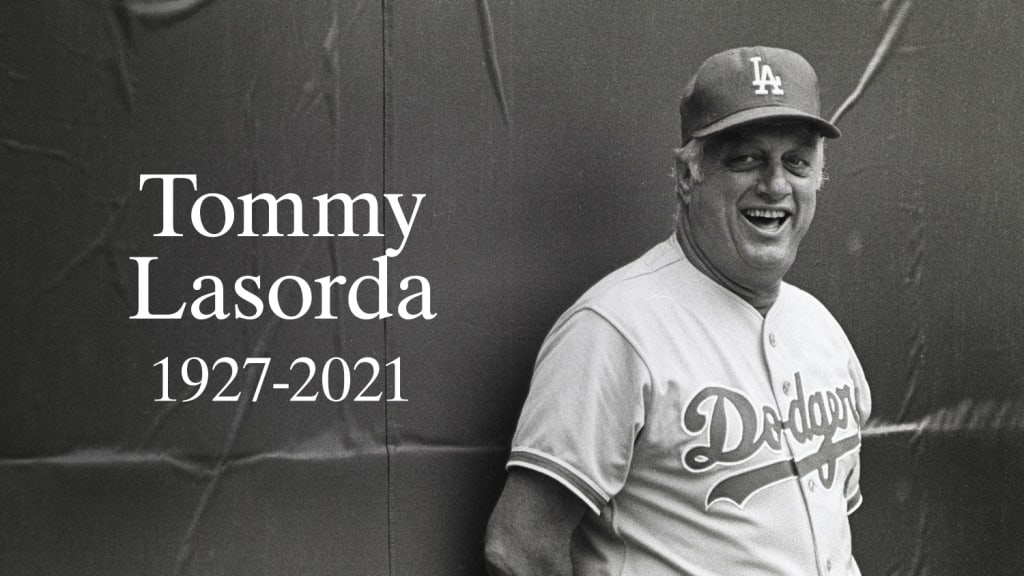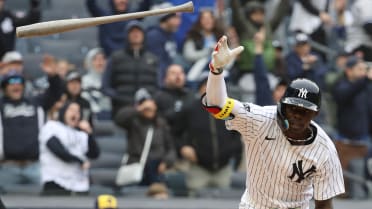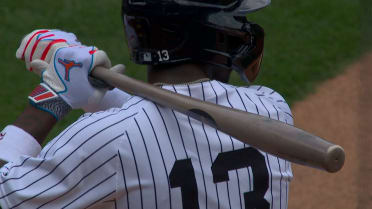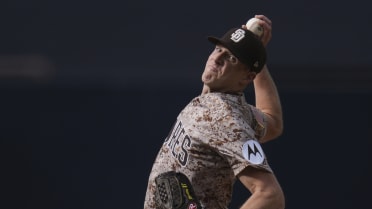
Hall of Fame Dodgers’ manager Tommy Lasorda, who spent seven decades in the Dodger organization and became one of the most memorable personalities in baseball history, passed away Thursday night the team announced. He was 93.
Lasorda suffered a sudden cardiopulmonary arrest at his home at 10:09 p.m. He was transported to the hospital with resuscitation in progress. He was pronounced dead at 10:57 p.m.
Regarded by many as baseball’s most popular ambassador, Lasorda spent 71 seasons in the Dodger organization with Dodger Blue running through his veins. He spent the last 14 as special advisor to the chairman.
Lasorda’s wish to see another Dodgers World Championship was fulfilled last October, when he traveled to Arlington, Texas to witness the Dodgers 3-1 victory over the Tampa Bay Rays in Game 6 of the World Series.
“My family, my partners and I were blessed to have spent a lot of time with Tommy,” said Mark Walter, Dodgers owner and Chairman. “He was a great ambassador for the team and baseball, a mentor to players and coaches, he always had time for an autograph and a story for his many fans and he was a good friend. He will be dearly missed.”
"In a franchise that has celebrated such great legends of the game, no one who wore the uniform embodied the Dodger spirit as much as Tommy Lasorda," Dodger president and CEO Stan Kasten said. "A tireless spokesman for baseball, his dedication to the sport and the team he loved was unmatched. He was a champion who at critical moments seemingly willed his teams to victory. The Dodgers and their fans will miss him terribly. Tommy is quite simply irreplaceable and unforgettable."
“There are two things about Tommy I will always remember,” former Hall of Fame broadcaster Vin Scully said. “The first is his boundless enthusiasm. Tommy would get up in the morning full of beans and maintain that as long as he was with anybody else.
“The other was his determination. He was a fellow with limited ability and he pushed himself to be a very good Triple-A pitcher. He never quite had that something extra that makes a major leaguer, but it wasn’t because he didn’t try. Those are some of the things: his competitive spirit, his determination, and above all, this boundless energy and self-belief. His heart was bigger than his talent and there were no foul lines for his enthusiasm.”
Thomas Charles Lasorda was born Sept. 22, 1927 in Norristown, PA.
Lasorda is survived by his wife of 70 years, Jo, who he married on April 14, 1950, their daughter, Laura, and granddaughter Emily Tess.
TOMMY LASORDA BIOGRAPHY
Regarded by many as baseball’s most popular ambassador, Lasorda spent 71 seasons in the Dodger organization bleeding Dodger Blue, the last 14 as special advisor to the chairman.
In 1997, Lasorda was elected to the National Baseball Hall of Fame by the Veterans Committee in his first year of eligibility. He was the 14th manager and 52nd Dodger inducted into the Hall of Fame.
Lasorda compiled a 1,599-1,439 record and won two World Championships, four National League pennants and eight division titles in an extraordinary 20-year career as the Dodgers’ manager. He is one of five managers to be with one team for 20 seasons. Tommy ranks 20th with 1,599 wins and 19th with 3,038 games managed in Major League history. His 16 wins in 30 NL Championship Series games managed were the most of any manager at the time of his retirement in 1996. He is one of only five managers to manage the same team for 20 years or more, joining Walt Alston, Connie Mack, John McGraw and Bobby Cox.
Lasorda posted a 3-1 record as the NL manager in four All-Star Games. He joined St. Louis’ Gabby Street (1930- 31) as the only managers in NL history to win league titles in his first two seasons when he led the Dodgers to titles in 1977-78. Lasorda also managed nine of the Dodgers’ 18 Rookies of the Year, more than any other big-league skipper.
He won numerous awards throughout his career, including being named Minor League Manager of the Year by The Sporting News in 1970, Manager of the Year by UPI and AP in 1977, Manager of the Year by AP in 1981 and NL Manager of the Year by Baseball America and Co-Manager of the Year by The Sporting News in 1988.
Lasorda was named a Dodgers vice president in 1996 after retiring as manager, a position he held for the previous 20 seasons. He assumed all player personnel responsibilities when he was named the Dodgers’ interim general manager on June 22, 1998. He relinquished his general manager duties when he was promoted to senior vice president on Sept. 11, 1998.
Prior to replacing Hall of Famer Walter Alston as manager on Sept. 29, 1976, Lasorda spent four seasons in Los Angeles on Alston’s coaching staff from 1973-76. He spent eight seasons as a manager in the Dodgers’ minor league system at Pocatello (1965), Ogden (1966-68), Spokane (1969-71) and Albuquerque (1972). Lasorda also spent four years as a Dodger scout after retiring as a player following the 1960 season. An astounding 75 players Lasorda managed in the minor leagues went on to play in the Majors.
Lasorda compiled a 0-4 record and 6.48 ERA as a left-handed pitcher in parts of three Major League seasons with the Brooklyn Dodgers (1954-55) and Kansas City Athletics (1956). In all, he spent 14 seasons in the minor leagues from 1945-60 and he served two years in the military from 1946-47.
Lasorda played a huge role in the globalization of the game of baseball. Then Commissioner Allan H. (Bud) Selig appointed him as the official ambassador of the inaugural World Baseball Classic in 2006, and again for the 2009 Classic that was played at Dodger Stadium. In that capacity, Lasorda served as a spokesperson for the tournament and continued his travels throughout the globe to promote the game of baseball. He visited nearly 30 countries in his lifetime, including Australia, Canada, Colombia, China, Chinese Taipei, Cuba, Denmark, England, the Dominican Republic, Italy, Japan, Mexico, Monaco, Norway, Panama, Puerto Rico, Scotland, South Korea, Spain, Sweden, Venezuela, Bermuda, Egypt, Iraq, Afghanistan, Turkey, Ireland and throughout the United States.
During the 2000 Olympic Games in Sydney, Australia, Lasorda managed an underdog United States team to the Gold Medal over the highly favored Cuban national team just five days after celebrating his 73rd birthday. The Olympic Gold Medal, which Lasorda considers his greatest professional achievement, marked his return to the dugout after his retirement in 1996.
“I knew absolutely nothing about any of them,” Lasorda said, recalling his first meeting with his USA squad consisting of primarily minor league prospects. “I told them when I first met them, I don’t know you guys…but I’m going to tell you this right now, and you remember what I’m telling you. When this thing is all over, the whole world is going to know about you guys.
“I was so proud of my players and happy I was able to do something for my country.”
During his seven-decade career, Lasorda met seven U. S. Presidents - Richard Nixon, Gerald Ford, Jimmy Carter, Ronald Reagan, George H.W. Bush, Bill Clinton and George W. Bush, who asked Lasorda to serve as a delegate to the U. S. National Day at the World Exposition in Aichi, Japan in June 2005. The World Exposition was not the first time President Bush called upon Lasorda for his assistance, as the Hall of Fame manager participated in festivities surrounding the president’s inauguration in January 2005. Two months later, Lasorda made a visit to the White House to represent the Dodgers in a ceremony that posthumously awarded Jackie Robinson with the Congressional Gold Medal. In 2007, Lasorda joined Dodger legend Don Newcombe in leading a contingent of Little Leaguers from Los Angeles to Washington, D.C., for a tee-ball game on the South Lawn of the White House.
A popular speaker, Lasorda addressed troops at more than 40 military bases across the world, including a five-country goodwill tour in 2009, and in 2014, he was recognized with the Bob Feller Act of Valor Award, for displaying the same values, integrity and dedication to serving the United States as Feller, a Hall of Famer pitcher who served in World War II.
In 2008, he was awarded with the Order of the Rising Sun, Gold Rays with Rosette by the Emperor of Japan for his contributions to Japanese baseball. He has made countless trips to Japan through the years, serving as a key liaison between the Dodgers and the Orix Buffaloes in their “friendship” agreement.
Lasorda was also the Dodger ambassador for “friendship” agreements the Dodgers had with other Asian teams, including the LG Twins from Korea and the Sinon Bulls from Taiwan. He threw the ceremonial first pitch in the China Baseball League’s first “World Series” in 2002. As baseball’s ambassador, Lasorda was called upon by Commissioner Selig to star in ad campaigns on behalf of Major League Baseball.
In 2009, Lasorda had his portrait installed in the Smithsonian Institution’s National Portrait Gallery. The portrait, which measures 60x50 inches, was painted by Everett Raymond Kinstler, and was presented to the Smithsonian as part of the celebration of his 60th season with the Dodgers.
In 2007, Lasorda was asked by the Hall of Fame to be a member of the committee on managers and umpires, leading to the elections of Billy Southworth and Dick Williams to Cooperstown. He served the Hall in the same capacity in 2009 that led to the election of Whitey Herzog and Doug Harvey. In 2011, he served on the Golden Era committee that elected longtime Chicago Cub Ron Santo.
Though the National Baseball Hall of Fame was his most prestigious honor, Lasorda has been enshrined in 17 sports and cultural Halls of Fame, including the Brooklyn Dodgers HOF (2009), Canadian Baseball HOF (2006), Italian American Sports HOF (1989) and California Sports HOF (2006). Lasorda’s uniform number (2) was retired by the Dodgers on Aug. 15, 1997 and the main street that leads to the entrance of Historic Dodgertown in Vero Beach, FL, was renamed Tommy Lasorda Lane on March 5, 1997. He also threw the ceremonial first pitch prior to Game 7 of the 1997 World Series.
The Norristown, Pennsylvania native grew up with Major League dreams, despite being the No. 3 pitcher on a two-man staff in high school. Lasorda’s success in the Norristown Parks and Recreation League drew the attention of a local scout, Jocko Collins. Lasorda signed his first professional contract in 1945 with the Philadelphia Phillies and he received a monthly salary of $100. Lasorda missed the 1946 and 1947 seasons because of military service. He returned to baseball with the Schenectady Blue Jays of the Canadian-American League. On May 31, 1948, he struck out 25 batters during a 15-inning game against Amsterdam and drove in the winning run with a single.
The Brooklyn Dodgers selected Lasorda in the minor league draft after the 1948 season, but he was barely noticed during his first spring training at the team’s Dodgertown spring training complex in Vero Beach. The 5-foot-10, 175-pount left-hander was one of more than 600 minor leaguers competing for jobs.
During Lasorda’s minor league career, he spotted his future wife in the grandstands while pitching for Brooklyn’s Greenville, South Carolina farm club in 1949. Joanne Miller was attending a ballgame with family members and her best friend, Margaret Goldsmith, whom Lasorda knew as the ticket-taker at the local movie theater. Lasorda asked Goldsmith during the game to stall for extra time after the game so he could meet Miller. Goldsmith intentionally left her sweater in the grandstand, prompting a u-turn from the parking lot. The ploy worked and Lasorda and Miller would eventually marry on April 14, 1950, something Lasorda predicted would happen when the pair went on their first lunch date at a small restaurant.
Lasorda won 57 games for Triple-A Montreal from 1951-54. He was briefly called up to Brooklyn in 1954 and 1955, but eventually was bumped from the roster because the Dodgers had signed a “bonus baby” whose contract required he stay with the Major League team.
That prospect was left-hander Sandy Koufax, whose greatness wouldn’t surface until the next decade. General manager Buzzie Bavasi called Lasorda into his office and explained the problem—needing to keep the rookie pitcher with control problems. When Bavasi asked which pitcher should go to the minors. Lasorda nominated Koufax, until he was overruled by Bavasi. Lasorda would later boast, “I can honestly say it took one of the greatest left-handers in baseball to knock me off that Brooklyn club.”
After his pitching career ended with the Dodgers’ Triple-A Spokane affiliate in 1960, Lasorda was offered a new challenge by scouting director Al Campanis as a scout for the team. Bavasi decided to make Lasorda a manager at rookie-level Pocatello, Idaho in 1965. Lasorda’s 1970 Spokane Indians are regarded as one of the greatest minor league teams of all-time. The Indians won the division title by 26 games by winning 94 games. Lasorda’s roster included Steve Garvey, Bill Buckner, Bobby Valentine, Tom Paciorek, Davey Lopes, Bill Russell, Doyle Alexander and Charlie Hough.
In September 2006, Lasorda received the Branch Rickey Award from the Denver Rotary Club for his lifetime of community service. Lasorda was a spokesperson for the American Heart Association and regularly visited patients at the Tom Lasorda Heart Institute at Centinela Hospital Medical Center in Inglewood, CA, which opened on Nov. 6, 2000. He was also an official spokesperson for the Prostate Cancer Foundation, which is an official MLB charity that promotes prostate cancer awareness. The Professional Baseball Scouts Foundation gives an annual award in his name for the most outstanding manager of the year and in 2006, the first year of its existence, Lasorda received the award as the Manager of the Century. Lasorda also sat on the board for the Statue of Liberty/Ellis Island Foundation and the U. S. Army Recruiting Advisory Council.
In December 2011, Rawlings presented him with the Rawlings Heart of Gold award for his philanthropic efforts. He received honorary doctorate degrees from Pepperdine University, St. Thomas University, Cal State Long Beach,
University of Phoenix, Concordia University, the University of Hawaii, Argosy University, Cypress College,
Marymount College and Loyola Marymount University. In February 2003, he was honored by Cal Tech when he became only the second person to ever have an asteroid named after them. His asteroid is #6128, otherwise known as Asteroid Lasorda.
Many of Lasorda’s greatest accomplishments and stories were compiled in I Live For This, his autobiography co-written with Los Angeles Times columnist Bill Plaschke. His first book was titled The Artful Dodger.
“What would baseball be without Tommy?” wrote the late Pulitzer Prize winning Los Angeles Times sports columnist Jim Murray. “You don’t want to know. A meal without wine, a day without sunshine, a dance with your sister. Any cliché you want. A life without song.
“Not to see that wonderful character bounding out of the dugout, belly first, fist pumping, bowlegs churning, throat yelling on his way to the umpire to straighten him out and tell it like it should be one more time? Never!”
One of Lasorda’s famous quotes will always be remembered — “Dodger Stadium was his address, but every ballpark was his home”.



